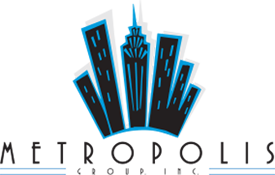By Frank Fortino
Filing for Year 2014 starts on January 1st, 2015. All filings must be completed by March 1st.
The New York City Right-to-Know Law, Local Law 26 of 1988, deems it necessary that all commercial, industrial, or public facilities that utilize, house, process, or handle any substances on NYC’S List of Hazardous Substance at or above its threshold repowering quantity (TRQ) must make all information readily available including chemical names, amounts stored, substance characteristics, safe treatment methods, and potential health effects to the NYC Department of Environmental Protection.
Summary of the New York City Community Right-to-Know Law
(NYC Administrative Code: Title 24, Chapter 7: Community Right-to-Know Law)
Who needs to File? The owner or operator (or consultant on behalf of the owner) of a facility must report all hazardous substances present in a quantity equal to or greater than a threshold reporting quantity (TRQ)
When is an Owner required to file? All premises which, at any point during a calendar year, hold a hazardous substance at an amount at or above the threshold amount specified by City regulations must file a Facility Inventory Form and pay the applicable fees. Some facilities are also required to prepare and submit a risk management plan to the Department of Environmental Protection on or before March 1 of every year. Some facilities may be eligible for exemptions under the law, based on the volume of hazardous substances stored on site, if any. Metropolis can assist you in determining whether your facility requires filing or is eligible for exemption.
Examples of Facilities That Are Required To Comply With The New York City Community Right To Know Law
Utilities, Industrial and Commercial Facilities: You are required to comply with the filing and labeling requirements for electrical equipment such as Transformers, Capacitors and others containing regulated dielectric fluids such as CB’s, mineal sprits, ineral ol, tetrachloroethylene etc. when present at or above the Threshold Reporting Quantity (TRQ).
Commercial Buildings, Hotels, Nursing Homes, and Businesses: You are required to file a Facility Inventory Form (FIF) for materials such as cleaning products, solvents and paints, which contain regulated substances present in quantities at or above the TRQ.
Auto Body Shops & Automobile Service Stations: You are required to report regulated substances that are used, stored, handled, or processed at your facility if present at or above the TRQ. (See Example 2 and 3). Material Supply Stores: You are required to file a Facility Inventory Form (FIF) for regulated substances sold in non-consumer packaging. Only chemicals packaged for sale to ordinary consumers may be exempt.
Dry Cleaning: You are required to file a facility Inventory Form (FIF) for DF2000, or Perchloroethylene, and the spot remover at your facility if present at or above the Threshold Reporting Quantity (TRQ).
Funeral Homes: You are required to submit the Facility Inventory Form (FIF) for the carcinogen and flammable substance pure or mixture at your facility if present at or above the Threshold Reporting Quantity (TRQ).
Filings Fees and Penalties for Non-Compliance: The filings Fees (payable directly to DEP) range from $200.00 to $1,200.00, based on the volume of hazardous substances store on site. The penalties for non-compliance range from $500 (first offense) to $20,000 per building.
